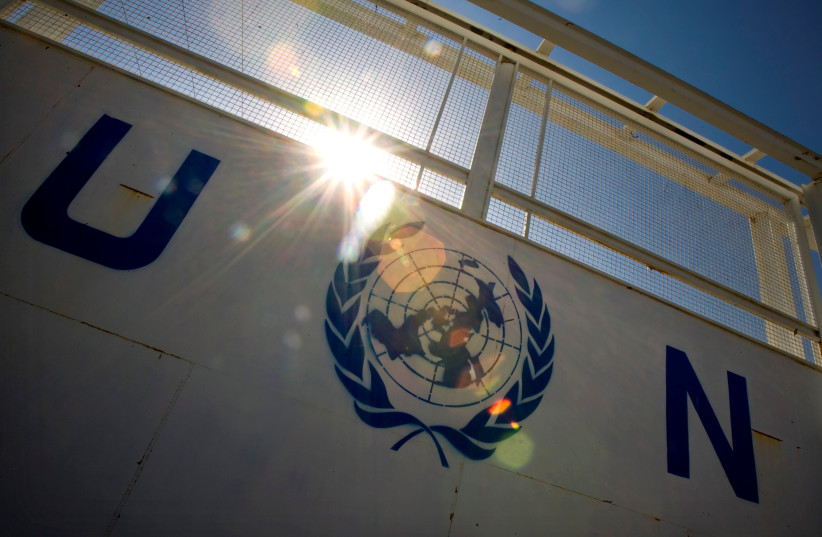In the context of International Peace Day, on September 22 the Kingdom of Bahrain’s Permanent Mission to the United Nations in Geneva, on behalf of Bahrain, Israel, Morocco, the United Arab Emirates and the University for Peace (UPEACE), delivered for the first time ever in the UN Human Rights Council a joint oral statement (JOS) on women, peace and diplomacy.
The wide support received for this initiative by more than 50 states and intergovernmental organizations, such as the European Peacebuilding Liaison Office and International Development Law Organization, underlines the empirical evidence of women’s contribution in peace and security.
The statement reaffirms women’s fundamental role in the peace process and conflict prevention, and calls upon states to strongly commit to ensure the advancement of women in preventive diplomacy and peace building.
It also calls upon member states to ensure that women have a seat at every table, that they are heard and that they can contribute to finding solutions and preventing conflict. Parties are committed to taking into account the experiences of women and girls, both living in conflict zones but also in peace and stability, and to always include a gender perspective, recognizing the unique impact different situations may have on women and girls.
As indicated by the United Nations Guidance for Effective mediation, “an inclusive process is more likely to identify and address the root causes of conflict and ensure that the needs of the affected sectors of the population are addressed. Inclusivity also increases the legitimacy and national ownership of the peace agreement and its implementation.”

In order to build on a comprehensive mapping of all conflict parties and stakeholders, mediators should “ensure systematic and structured consultation with women’s groups early in the process to allow for meaningful participation, with specific efforts to include them in the mediation process.”
The commonality between Bahrain, Israel, Morocco, the UAE and UPEACE to bring this initiative to the UN is their strong commitment to the empowerment of women and gender equality in the multilateral system. This JOS should pave the way for a future joint common action with the purpose of highlighting the integration of women in the peace processes and in all discussions relevant to promote peace around the globe.
The JOS is the first initiative led by this group of countries within the multilateral system and it happened in the UN in Geneva, the City of Peace and Human Rights.
This historical UN landmark was possible thanks to the engagement, hard work and excellent cooperation among all members of this core group, such as ambassadors and their teams of experts, following the fruitful discussions held during the last months between the permanent observer of UPEACE to the UN Office in Geneva and the State of Israel’s special envoy on UNSC Resolution 1325 to start a new process on women and peace in the United Nations.
These initial discussions were carried later out successfully and professionally by the above-mentioned permanent missions. This success could not be achieved without the extraordinary work and the gender participation represented in the core group by the deputy permanent representatives of Israel and UAE.
In light of the experience accumulated on peace studies since its creation by the General Assembly in 1980 under the leadership of Costa Rica, UPEACE plays the role of the legal and political adviser in the core group. Additionally, this JOS will surely complement the initiative led by Spain on peace, women and security at the Human Rights Council in October 2020.
Nevertheless, in this endeavor special recognition should go to the Permanent Mission of the Kingdom of Bahrain, represented by its ambassador, for its courage, vision and engagement. However, we would like to extend our appreciation for the creative and forward-thinker legal expert deputy permanent representative of the Permanent Mission of the Kingdom of Bahrain, who was instrumental in developing as well as bringing this initiative into action in the UN.
By becoming part of this innovative cross-regional initiative, UPEACE fulfills its mandate “with a clear determination to provide humanity with an international institution of higher education for peace and with the aim of promoting among all human beings the spirit of understanding, tolerance and peaceful coexistence, to stimulate cooperation among peoples and to help lessen obstacles and threats to world peace and progress, in keeping with the noble aspirations proclaimed in the Charter of the United Nations” (Charter of UPEACE, Resolution 35/55 of the UN General Assembly, December 5, 1980).
The writer is a permanent observer of the University for Peace to the UN Office at Geneva and a permanent delegate of UNESCO in Paris.
